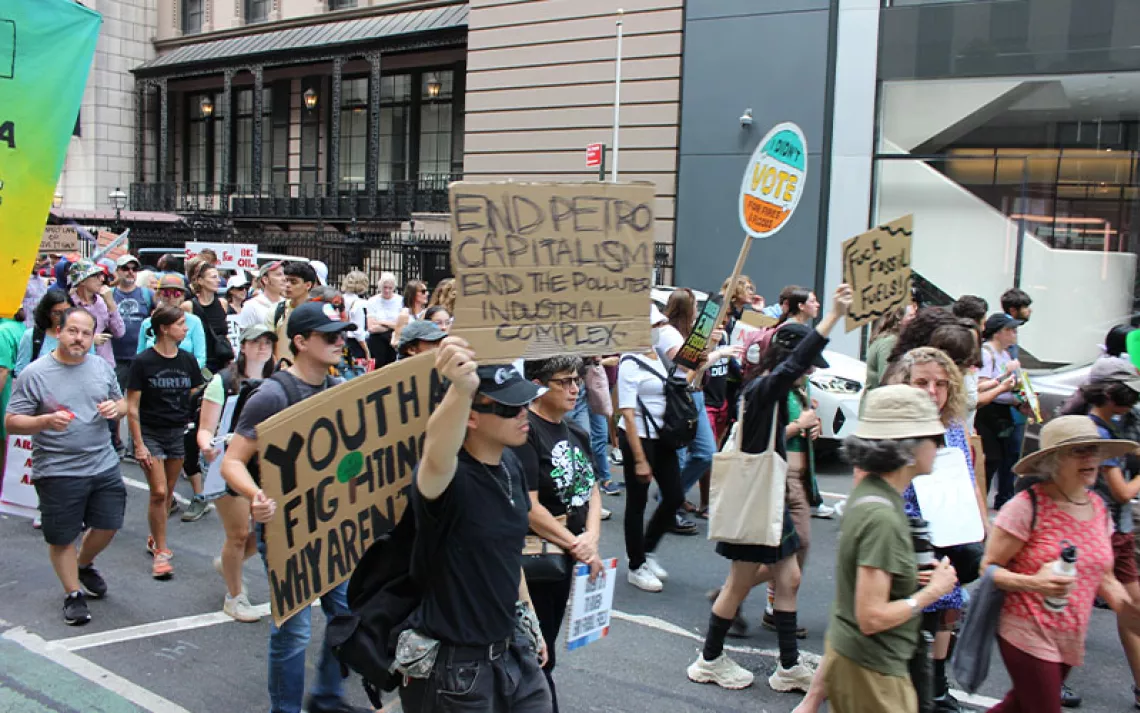Corporate Accountability
The citizens' action group Alliance for Democracy wants to make corporate officers and boards personally liable for their organization's actions.

The first artificial life-form was created not by scientists but by the U.S. Supreme Court. On May 10, 1886, it ruled that a corporation is a "natural person" entitled to the same rights and protections enjoyed by U.S. citizens, yet whose liability is strictly limited. So when a mine pollutes a water supply or a chemical dump poisons a school, the guilty corporation might absorb the fines but no one goes to jail. (Even in the event of bankruptcy, corporate officers are protected, sailing away on golden parachutes.)
"When people find out that corporations have the rights of citizens but not the obligations, they're outraged," says James Price, Southeast staff director for the Sierra Club. Yet, he says, environmentalists are learning many different ways to challenge corporate power: "In some cases you can use the courts; in others, it takes direct action. The key is educating the public."
The citizens' action group Alliance for Democracy is calling for an overhaul of state corporation codes to make corporate officers and boards personally liable for their organization's actions. Another approach is to threaten rogue corporations with the revocation of their charters. In California, environmentalists and human-rights activists tried-but failed-to persuade state attorney general Bill Lockyer to yank the charter of Los Angeles-based oil company Unocal for its environmental and human-rights record.
If charter revocation is the stick, the carrot is a seal of good corporate citizenship. The Coalition for Environmentally Responsible Economies invites companies to adopt its ten-point "CERES Principles," promising to reduce pollution, use recycled products, and communicate their progress through annual self-evaluations. "My job is to talk with companies from across the table instead of across a demonstration line," says CERES board member (and Sierra Club Atlantic Chapter chair) Stuart Auchincloss. So far, more than a dozen Fortune 500 companies have signed on, including Ford, Sunoco, Nike, and Consolidated Edison. Merely signing does not confer a seal of approval, however. "Campaigners should hold companies up as hypocrites when they endorse the principles and don't live up to them," says Auchincloss.
Firms can also be pressured from within through actions like the one brought against Home Depot in May 1999, when activist shareholders demanded a vote on phasing out the sale of old-growth wood products. The measure won almost 12 percent of the voting shares. Within three months, Home Depot announced it would cease selling old-growth products by the end of 2002. "Even though there is a tremendous amount of corporate power, resistance is growing," says Ruth Caplan, chair of the Sierra Club's Corporate Accountability Committee. She cites as a hopeful sign the defeat of the Multilateral Agreement on Investments, which would have given corporations broad powers to sue national governments, and to evade boycotts and trade sanctions for environmental and human-rights abuses. The defeat, says Caplan, came about largely through grassroots pressure: "It proved that an effective citizens' movement can make a real difference."
 The Magazine of The Sierra Club
The Magazine of The Sierra Club
